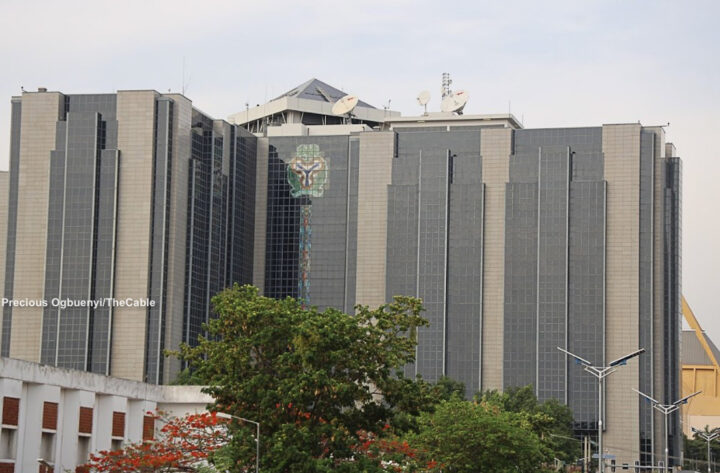Manufacturers decry 27.5% MPR, say high credit costs choke industry
The Manufacturers Association of Nigeria (MAN) has expressed growing alarm over the Central Bank of Nigeria’s (CBN) sustained monetary policy stance, warning that the current interest rate regime is undermining the country’s manufacturing base and economic resilience.
In a statement issued on Wednesday, 21st May 2025, MAN Director General, Segun Ajayi-Kadir, said the decision by the CBN to retain the Monetary Policy Rate (MPR) at 27.5 percent since November 2024 is out of step with global economic trends, where many nations are reducing interest rates to support growth and industrial recovery.
“We are perturbed that when most progressive economies are charting a course toward industrial recovery and macroeconomic stability, Nigeria’s monetary stance tends to lead us in a different direction,” Ajayi-Kadir said. “Over the last quarter, countries such as members of the Euro Area, the United Kingdom, Denmark, Australia, China, India, Thailand and Egypt, have implemented interest rate cuts to bolster economic growth and support productive sectors. Yet, our rigidity continues to create unintended consequences that may deepen the parlous performance of the productive sector.”
Ajayi-Kadir pointed out that with credit priced as high as 37 per cent, Nigeria ranks among the most expensive environments globally for manufacturers seeking loans.
“A nation cannot industrialise on the back of prohibitively expensive credit,” he warned, stating that the policy has become “inflationary” and is
“suffocating the capacity of the manufacturing sector.”
He noted that small, medium, and large-scale manufacturers are struggling to meet operational costs and sustain production, as rising borrowing costs lead to underutilization of industrial capacity and declining investment returns.
He stressed that when credit is priced highly, production declines and the nation imports poverty.
Ajayi-Kadir also raised concerns about the broader impact on the government’s “Nigeria First Policy,” which promotes local industry and reduces import dependence. According to him, financing costs for MAN members surged by over 44 per cent from ₦1.43 trillion in 2023 to ₦2.06 trillion in 2024, a development that has directly suppressed productivity.
The downturn in manufacturing confidence was reflected in the decline of the Manufacturers’ CEO’s Confidence Index, which fell from 50.7 to 48.3 points.
Ajayi-Kadir questioned the emphasis on attracting foreign portfolio investment while domestic industries struggle to survive.
“A nation that woos foreign portfolio investors at the expense of its real sector may unwittingly be aspiring to build prosperity on the back of volatility,” he said. “While maintaining a high interest rate of 27.5 per cent may temporarily attract speculative foreign portfolio investors, it is doing so at the expense of Nigeria’s manufacturing base, which is now choked by unsustainable borrowing costs.”
He highlighted the widening profitability of the banking sector in contrast with the challenges facing manufacturers. “This is an economic paradox that must be urgently addressed. The current monetary policy trajectory risks turning banks into vaults of idle wealth, while the real economy, where jobs are created and value is added, faces suffocation,” he said.
Ajayi-Kadir maintained that affordable credit is essential for industrial growth and called on the CBN to urgently revisit its monetary policy. He argued that recent disinflation trends and improved real interest rates already provide investors with better inflation-adjusted returns, making the high nominal rate unnecessary.
He stated: “Maintaining a high nominal interest rate under current inflation conditions is neither necessary nor justifiable, and will only prolong the pain for manufacturers and consumers alike.”
MAN’s key recommendations to the CBN include a significant cut in the benchmark interest rate; policy incentives for commercial banks to offer single-digit, concessionary interest rates to manufacturers; the release of the ₦1 trillion Stabilization Fund to support struggling industries; an increase in the Bank of Industry’s capital base; and the settlement of the $2.4 billion in outstanding Forex Forward Contracts to restore confidence and access to essential imported inputs.
Ajayi-Kadir also urged the government to provide a stable customs duty exchange rate for industrial raw materials and machinery, in order to prevent further inflationary impacts on the sector.
“Industrial confidence is a fragile currency and once broken, it takes time to rebuild,” he said. “Nigeria cannot afford to lose its manufacturing momentum at a time when the world is repositioning for the next wave of industrial transformation.”
He warned that unless urgent measures are taken, the current monetary policy could undermine national economic resilience.
He pointed out that the administration’s commendable reforms are being hampered by persistently high costs and limited access to funds, which is eroding manufacturers’ confidence and jeopardising the nation’s economic stability.












